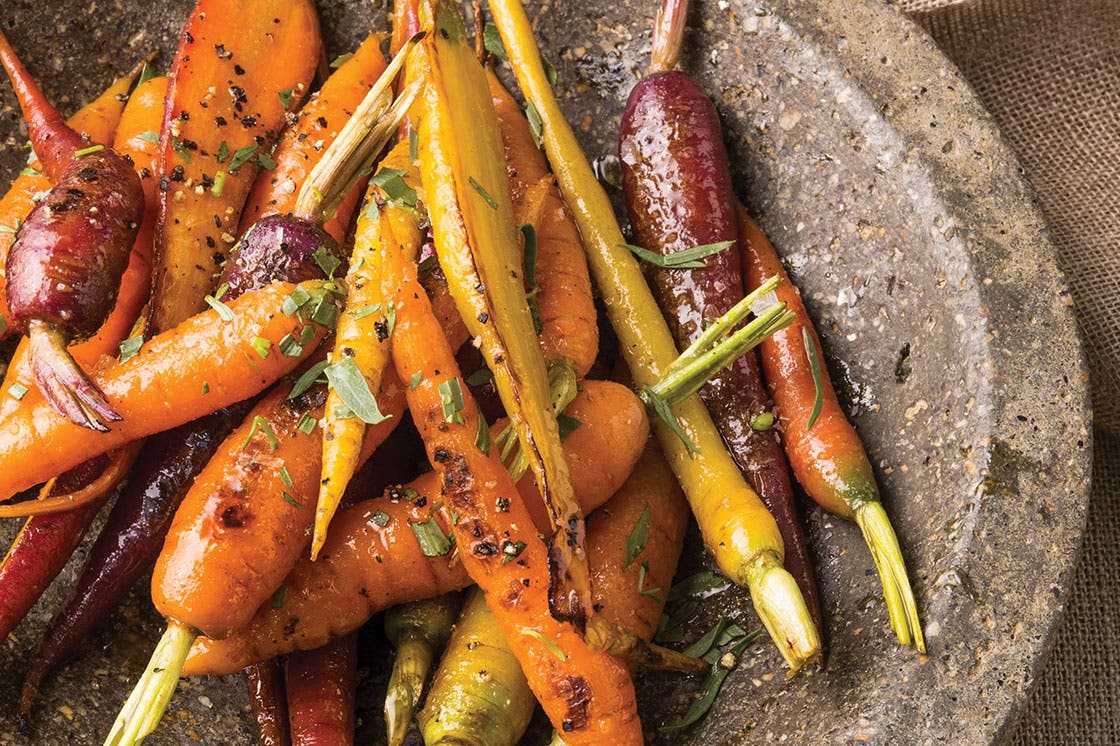Nutrition IQ: Sweet Potatoes vs. Carrots
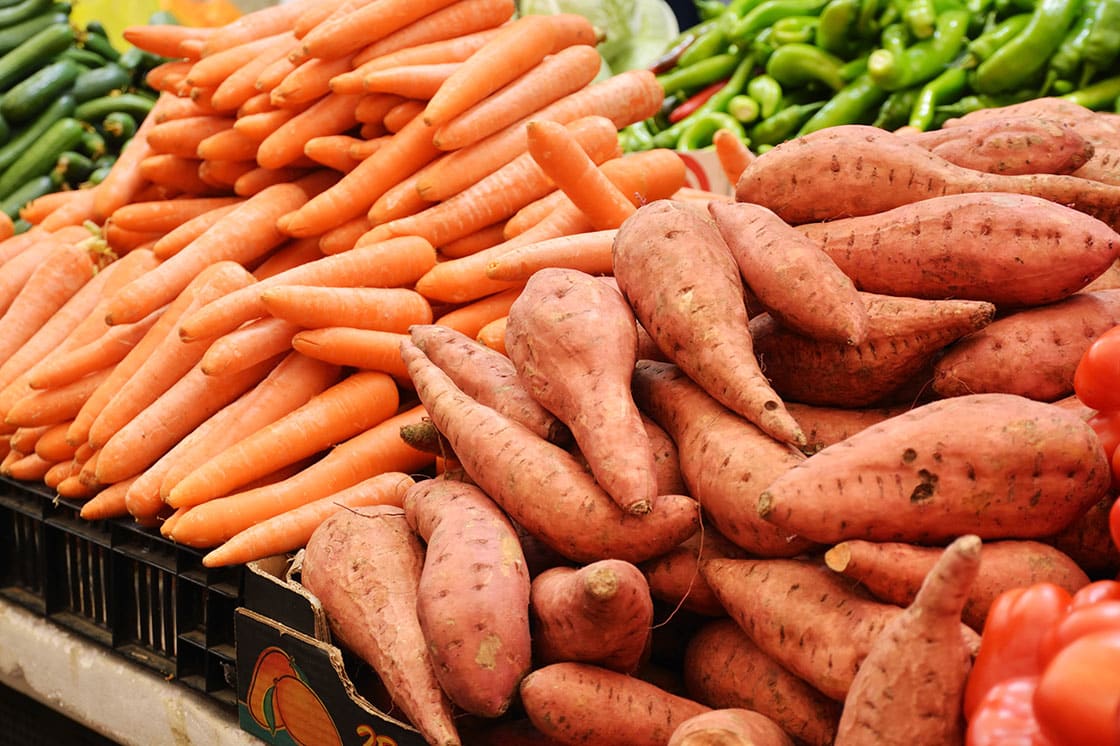
If a beta-carotene contest were held, sweet potatoes and carrots would tie for first place. But beyond that, which of these veggies wins an overall nutrition showdown? First, a bit about why beta-carotene is so great. All green leafy veggies, squashes, apricots, and even green peppers contain high levels of this provitamin. (FYI: It is called a provitamin because it converts to active vitamin A once it enters our bodies.) The more carotenoids we eat from plant foods, the stronger the shield we build around our cells to fight toxic free radicals. This immunity-boosting nutrient is also primarily responsible for giving carrots and sweet potatoes their rich orange hues. Let’s see what else makes these two foods so nutritious and find out which one comes out on top.
Sweet Potatoes
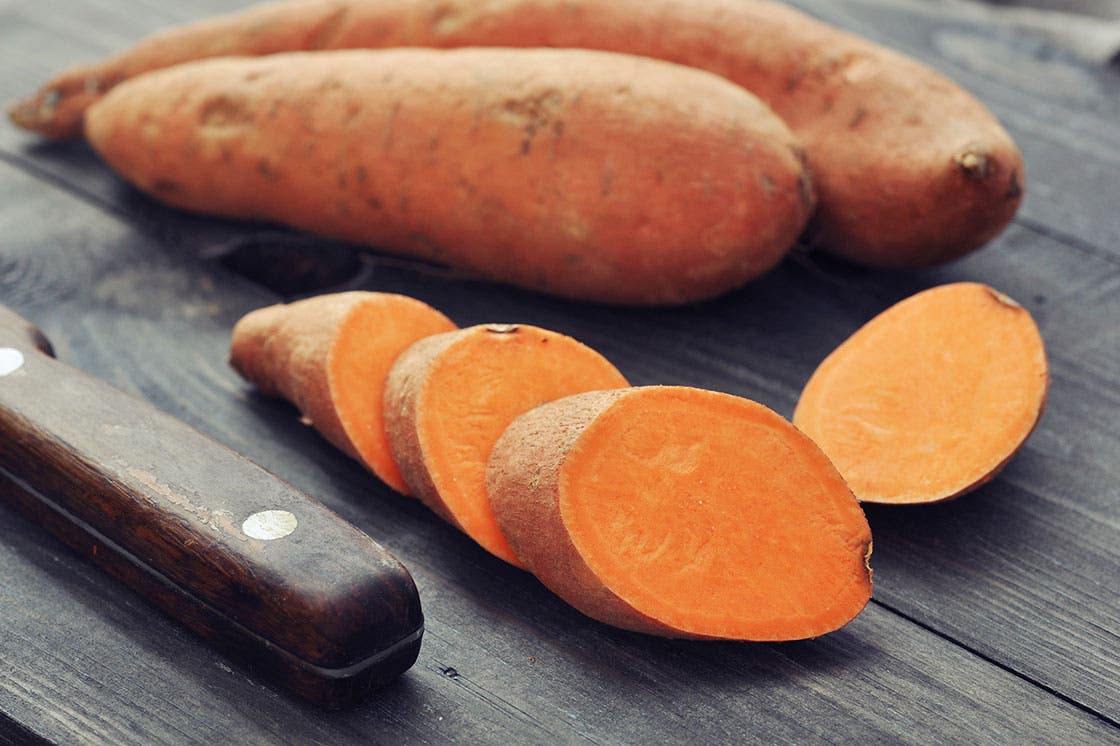
In addition to beta-carotene, sweet potatoes are packed with a group of antioxidants known as anthocyanins. Potent free-radical fighters, anthocyanins are pigments that contribute to the coloration of many red, orange, blue, and purple foods. Anthocyanins are anti-inflammatory and help slow the aging process. Research indicates that the anthocyanins in sweet potatoes are most easily absorbed by our bodies when cooked (steaming or baking is best) because enzymes that interfere with anthocyanin absorption are destroyed upon heating. What other nutrients can you expect to find in sweet potatoes? Think high levels of vitamin C, manganese, tryptophan, potassium, copper, and plenty of fiber. Eat sweet potatoes with a healthy source of fat like nuts, seeds, or avocados for maximum nutrient absorption. One cup of sweet potato contains about 105 calories and 15 percent of our daily fiber requirements.
Carrots
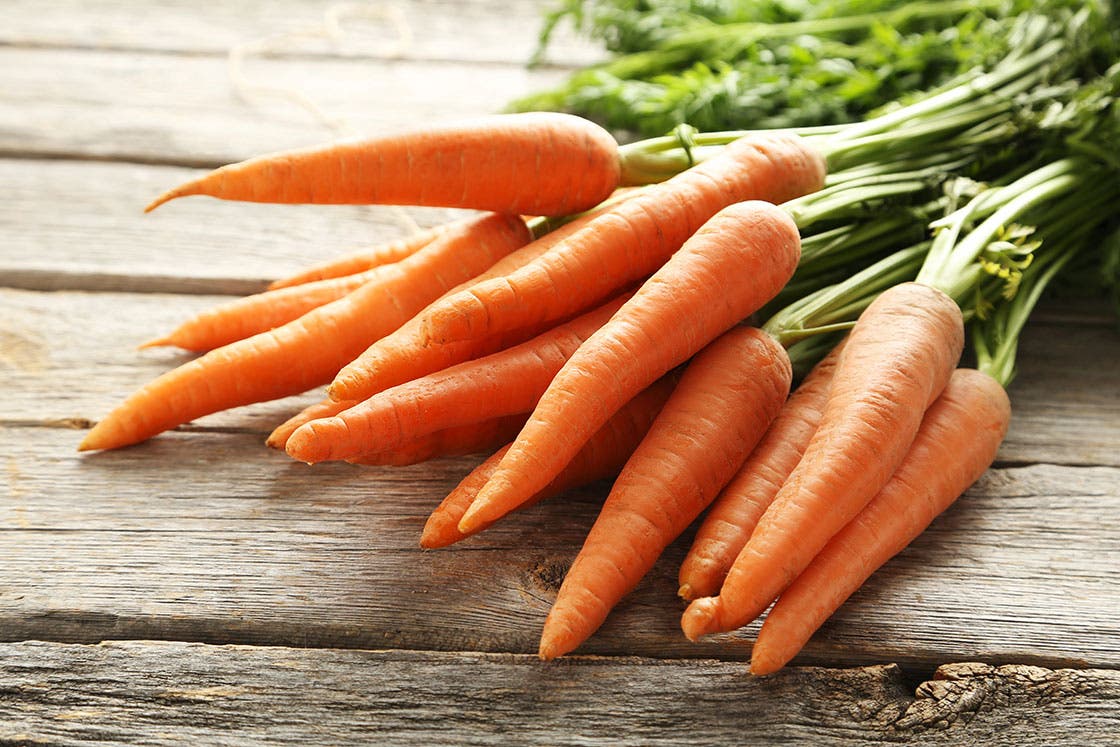
Carrots are an amazing food. Studies indicate that the more carrots we eat, the more forceful a shield we create to defend ourselves from chronic diseases such as cardiovascular disease and cancer. A 10-year study in the Netherlands found that participants who ate ¼ cup of carrots each day had a significantly lower risk of cardiovascular disease compared to participants who consumed no carrots. Participants consuming at least ½ cup of carrots every day had even more protection against cardiovascular disease than those consuming ¼ cup.
What is it about carrots that makes them such powerful warriors against disease? The answer may lie in a class of nutrients that receives far too little attention: polyacetylenes. Polyacetylenes, such as the falcarinol and falcarindiol in carrots (no need to remember those names, just the health benefits!), are phytonutrients that inhibit the growth of toxic or cancerous cells. They become especially potent when consumed with carotenoids like beta-carotene, enabling both nutrients to combat free-radical damage with even more strength and effectiveness. Research like this provides further proof that consuming nutrients packed into whole foods is almost always more beneficial than isolating nutrients and consuming them in the form of a pill. Like sweet potatoes, carrots contain plenty of anthocyanins. They are also a rich source of vitamin K, vitamin C, potassium, manganese, folate, phosphorus, and fiber. One cup of raw carrots is a mere 50 calories and 3.5 grams of fiber, so they are a great food for weight loss.
And the winner is … carrots! But not by much. Both sweet potatoes and carrots are superfoods for disease prevention and overall health. The best diet is one that is well-rounded and packed with an array of colorful fruits and vegetables, so aim to include at least a few servings of sweet potatoes in your diet each week and fill up on those carrots! While you need not consume carrots every day to receive all of their benefits, remember that the more of them you eat, the more disease protection you will receive. Here are some great VT recipes to help you boost your consumption of sweet potatoes and carrots:
Sweet Potato Bowl with Chimichurri
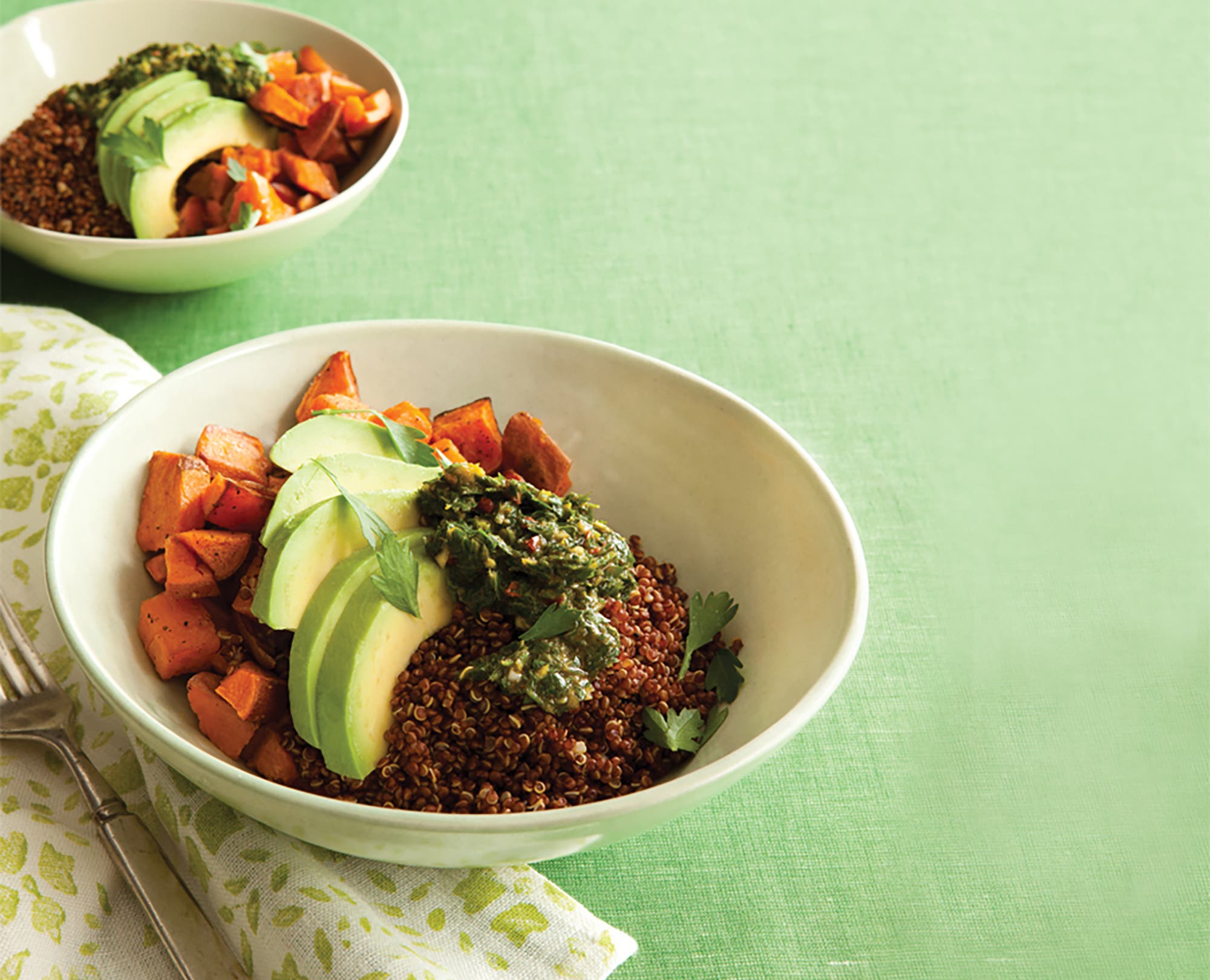
Get the recipe.
Cumin and Lime Roasted Sweet Potatoes
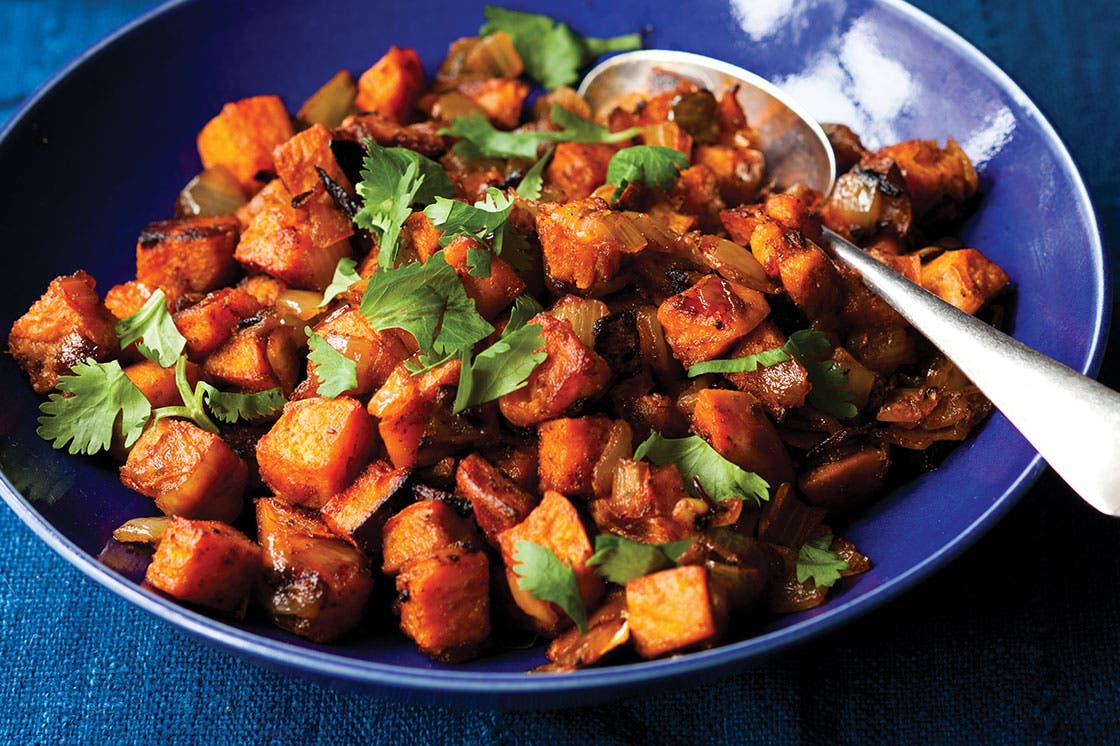
Nutty Sweet Potato Soup with Harissa and Spinach
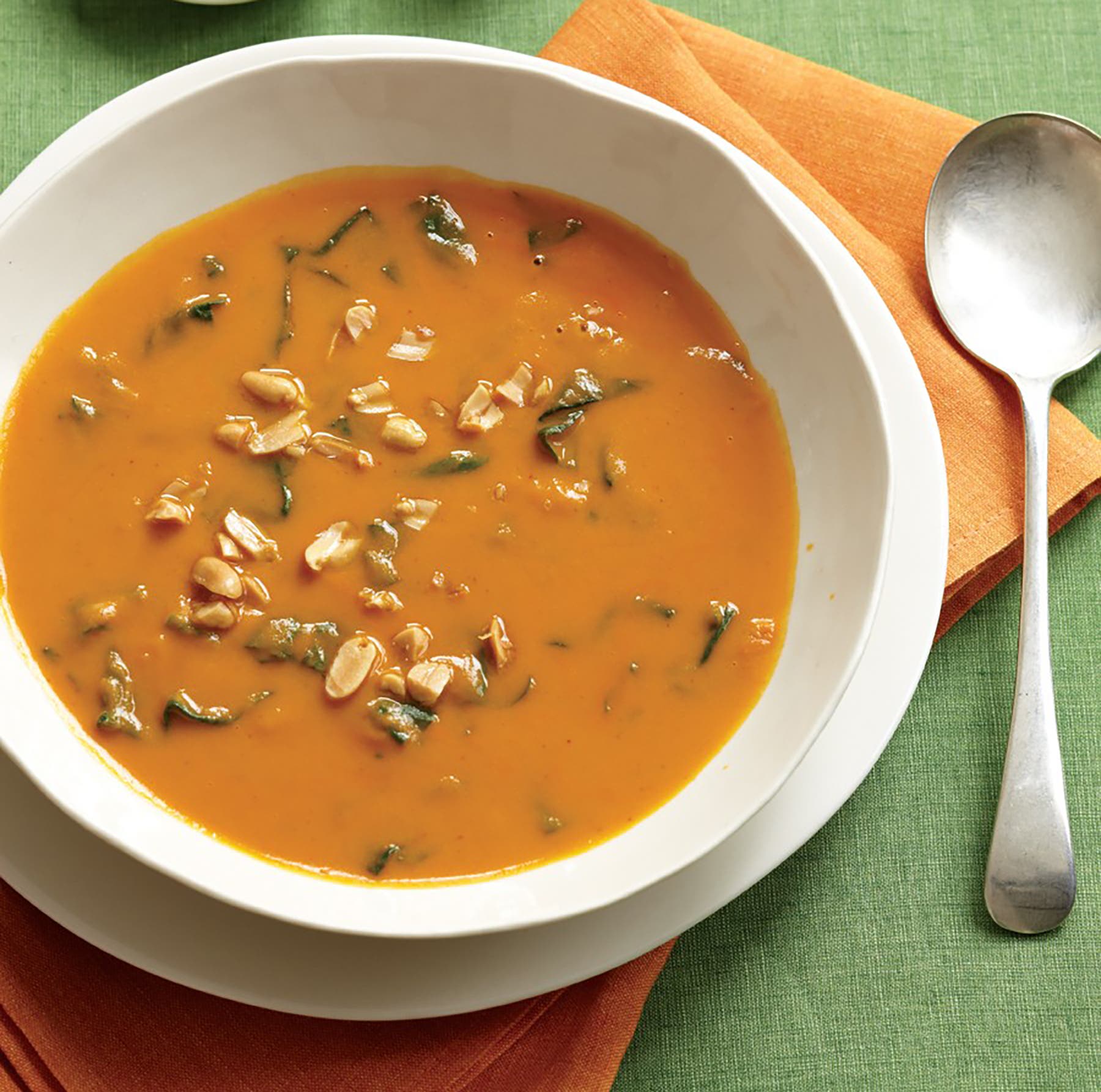
Carrot-Orange Smoothie
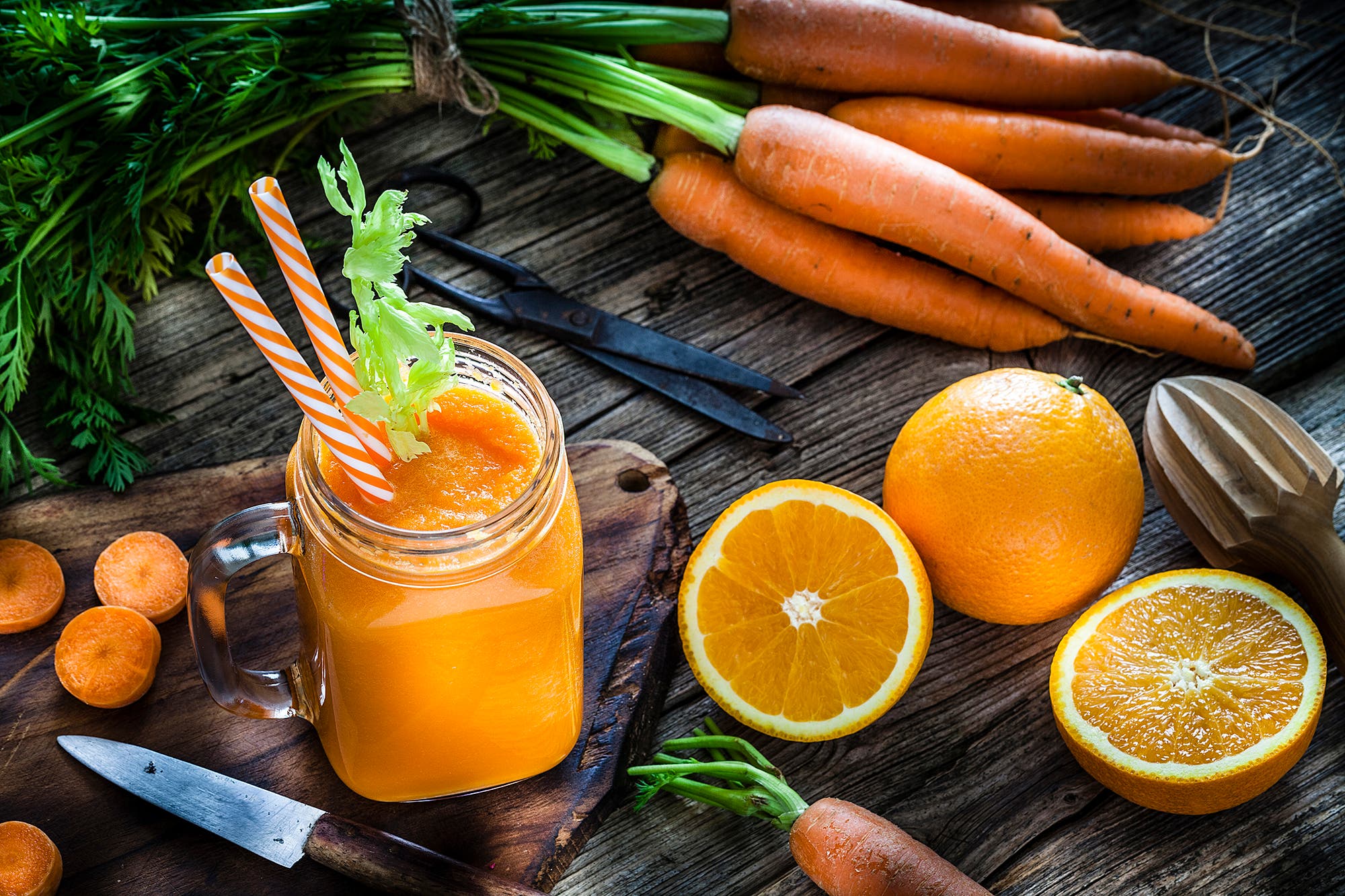
Curried Carrot Soup
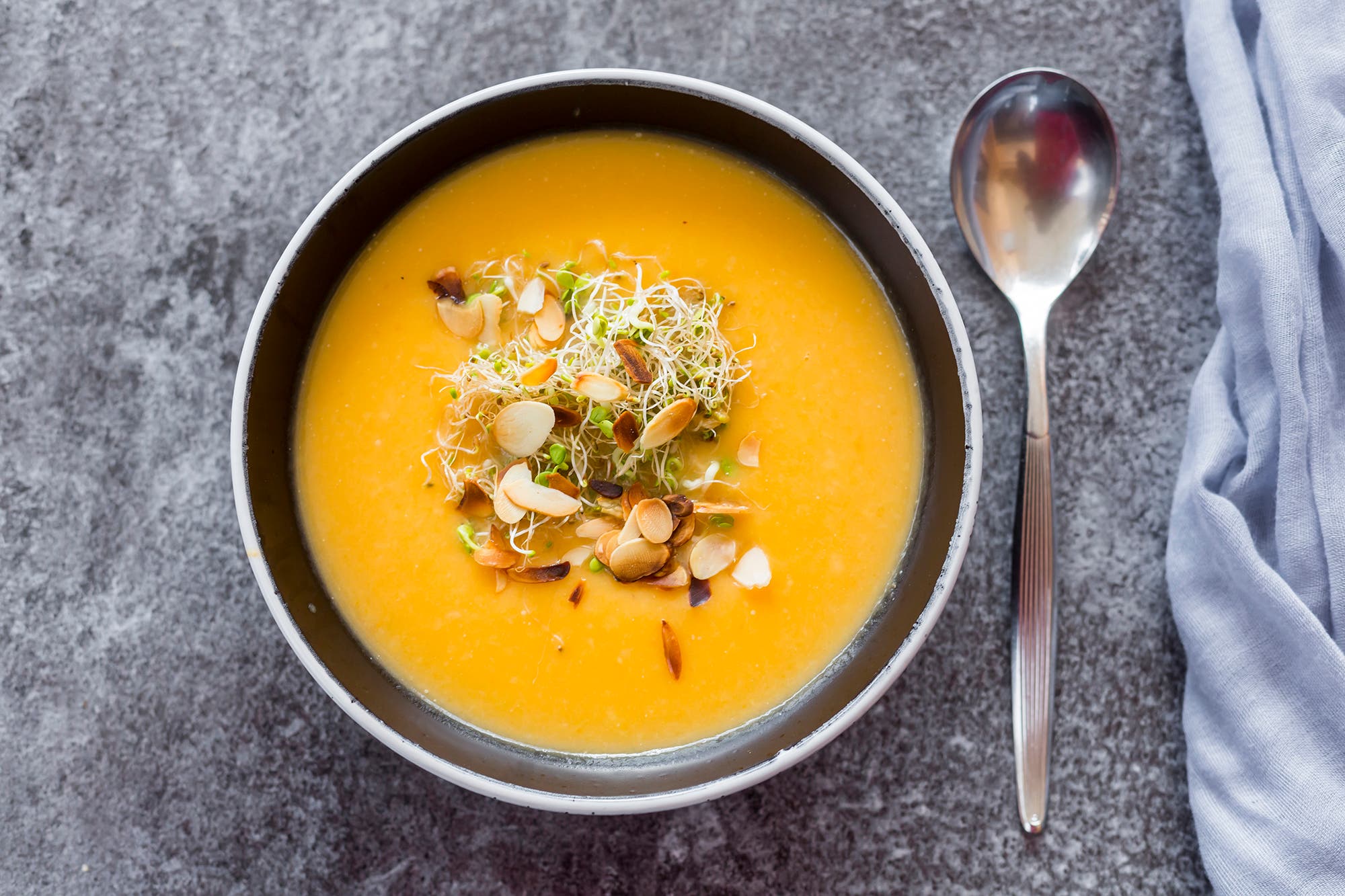
Maple-Glazed Carrots
